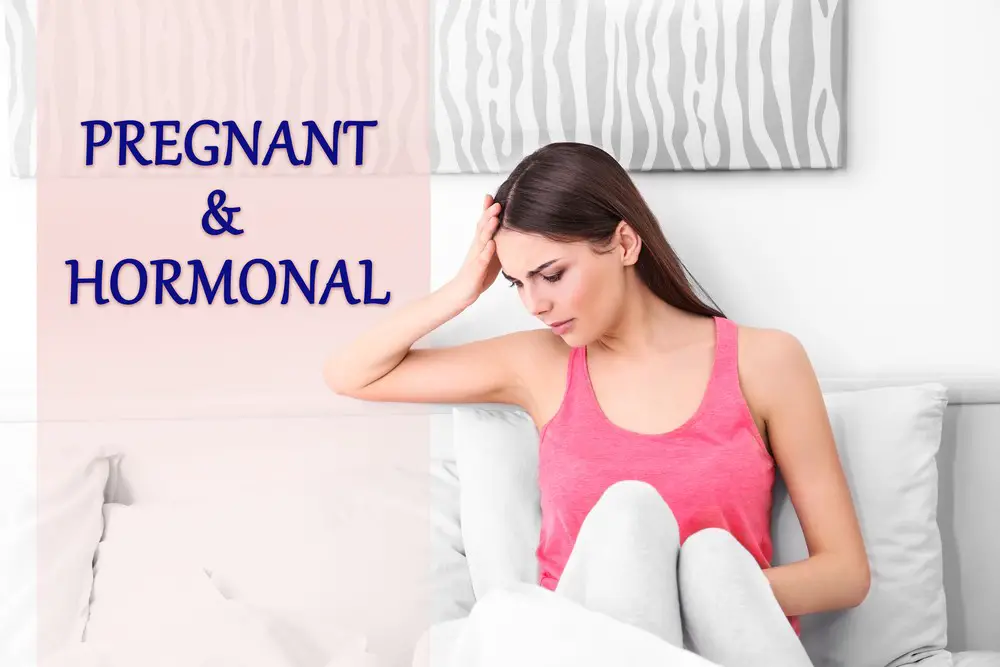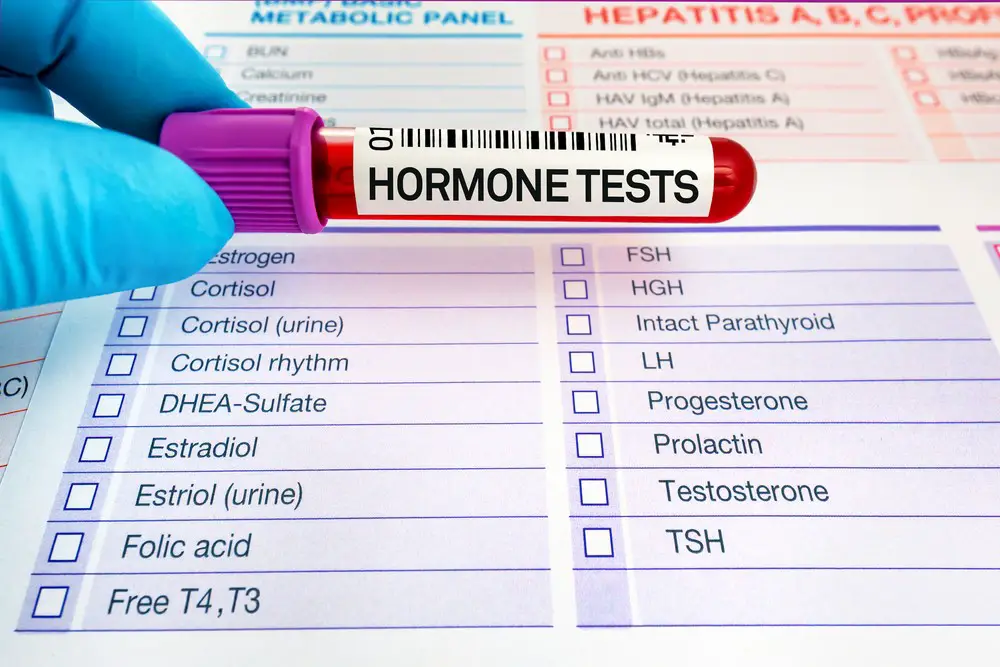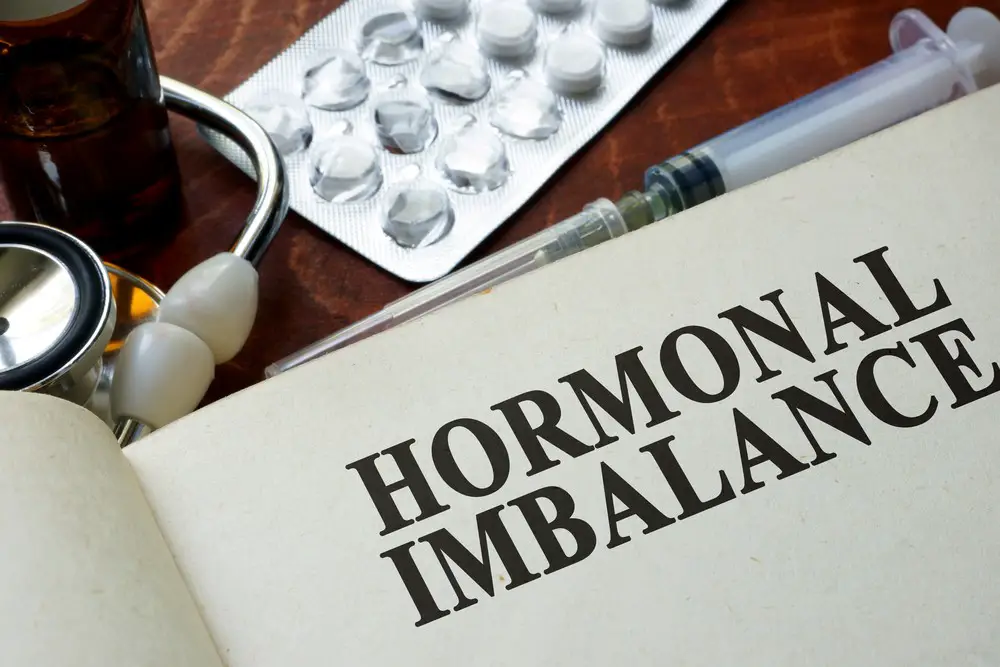As a BetterHelp affiliate, we receive compensation from BetterHelp if you purchase products or services through the links provided
Hormonal imbalances are a common health issue that affects millions of people worldwide. In some cases, these imbalances can lead to various physical and emotional symptoms, including anxiety. Anxiety and stress-related disorders can have a significant impact on a person’s quality of life, so it’s crucial to understand the role hormones play in causing this condition.
The human body’s endocrine system is responsible for producing and regulating hormones, which are essential for many bodily functions. An imbalance in hormone levels occurs when the endocrine system doesn’t function properly, disrupting our physical, mental, and emotional well-being. By examining the connection between hormonal imbalance and anxiety, we can better understand how to manage these symptoms and improve an individual’s overall health.
Key Takeaways
- Hormonal imbalances can cause anxiety and stress-related disorders
- An imbalance in hormone levels occurs when the endocrine system doesn’t function properly
- Understanding the connection between hormonal imbalance and anxiety can help manage symptoms and improve overall health
Hormonal Imbalance and Anxiety
Anxiety Disorders
Hormonal imbalances can contribute to anxiety disorders in individuals. Hormones play a crucial role in regulating mood and mental health. When there is an imbalance, it may cause the brain to produce inadequate levels of neurotransmitters, such as serotonin and dopamine. These neurotransmitters are essential for stabilizing mood and maintaining emotional well-being. As a result, individuals with hormonal imbalances may experience heightened anxiety and stress.
Mood Swings
Mood swings are frequent among individuals with hormonal imbalances. Fluctuations in hormone levels can lead to changes in mood and emotions, ultimately increasing the risk of anxiety. For example, during menopause or premenstrual syndrome (PMS), women may experience significant hormonal shifts, leading to mood swings and heightened anxiety. Similarly, men undergoing andropause may also experience mood swings and anxiety due to changes in testosterone levels.
Panic Attacks
Hormonal imbalances may also be a contributing factor to panic attacks. A panic attack is a sudden, intense surge of fear or discomfort accompanied by physical symptoms such as heart palpitations, shortness of breath, or dizziness. When hormone levels are imbalanced, the body’s stress response may be heightened, making individuals more susceptible to panic attacks. Balancing hormonal levels through medical interventions or lifestyle changes can help alleviate the frequency and severity of panic attacks and anxiety.
Globally imbalances can contribute to anxiety disorders, mood swings, and panic attacks. Imbalanced hormone levels may affect the brain’s production of neurotransmitters, impacting mental health and emotional well-being. By addressing the underlying hormonal imbalances, individuals can potentially improve their anxiety symptoms and overall mental health.

Common Causes of Hormonal Imbalances
Stress and Anxiety
Stress and anxiety can lead to hormonal imbalances as they trigger the production of cortisol, a stress hormone. Prolonged exposure to high cortisol levels can disrupt the balance of other hormones in the body. Stress reduction through exercise, meditation, and proper sleep can help restore hormonal balance.
Menopause
Menopause is a natural stage in a woman’s life when her menstrual cycle ends, usually between the ages of 45 and 55. During this time, estrogen and progesterone levels decrease, causing a hormonal imbalance. Symptoms include mood swings, anxiety, hot flashes, and insomnia. Hormone replacement therapy (HRT) is a common treatment to alleviate these symptoms.
Pregnancy and Childbirth
Pregnancy and childbirth cause significant hormonal fluctuations in a woman’s body. Levels of estrogen, progesterone, and other pregnancy-related hormones increase, while others may decrease. This can result in mood changes, anxiety, and even postpartum depression. Post-pregnancy, hormone levels gradually return to their pre-pregnancy state.
Puberty
Puberty is a period of rapid physical growth and hormonal changes in adolescents. The pituitary gland increases the production of sex hormones, such as estrogen and testosterone, which can lead to mood swings, anxiety, and other emotional changes. Over time, hormone levels stabilize, and these symptoms may subside.
Thyroid Conditions
Thyroid conditions, such as hypothyroidism and hyperthyroidism, can cause hormonal imbalances due to abnormal production of thyroid hormones. These conditions can lead to symptoms like fatigue, weight gain or loss, and anxiety. Treatment typically involves medication to help regulate hormone levels.
Recognizing Symptoms of Hormonal Imbalance
Physical Symptoms
Hormonal imbalances can manifest in various physical symptoms. Some common signs include weight gain, fatigue, and changes in appetite. It is important to monitor these changes in the body, as they may indicate an underlying hormonal issue.
Mental Health Symptoms
Mental health symptoms can also be prevalent when experiencing hormonal imbalances. Depression, mood swings, and irritability are common indicators that might point to a hormonal cause. Awareness of these mental health symptoms can help identify potential hormonal imbalances that could contribute to anxiety.
Hormones Involved in Anxiety
Sex Hormones
Sex hormones, such as estrogen, progesterone, and testosterone, significantly regulate mood and emotions. Imbalances in these hormones can contribute to anxiety. Estrogen is known to positively affect mood by increasing serotonin, a neurotransmitter that helps regulate emotions. Decreased estrogen levels, experienced during menopause or premenstrual syndrome (PMS), might lead to anxiety symptoms.
On the other hand, progesterone has a calming effect on the body, as it helps modulate the stress response and promotes relaxation. Imbalances in progesterone, leading to excessive or insufficient levels, could also trigger anxiety. Testosterone, although primarily considered a male hormone, also affects mood and emotional well-being in both sexes. Low testosterone levels in men and women can be linked to increased anxiety and decreased resilience to stress.
Stress Hormones
Stress hormones play a crucial role in our body’s response to stressors and perceived threats by activating the “fight or flight” response. Cortisol and adrenaline are two primary stress hormones that impact anxiety. Prolonged exposure to high cortisol levels may cause an overactive stress response, making individuals more vulnerable to anxiety. Moreover, adrenaline surges can cause anxiety-related physical symptoms, such as rapid heartbeat, excessive sweating, and shortness of breath.
Thyroid Hormones
The thyroid gland produces hormones that regulate metabolism and overall energy levels. Imbalances in thyroid hormone levels, such as those found in hypothyroidism (low thyroid hormone levels) or hyperthyroidism (high thyroid hormone levels), can significantly influence mood and anxiety levels. For example, excessive thyroid hormone levels can lead to increased anxiety, restlessness, and irritability, while decreased levels might result in fatigue, depression, and anxiety-like symptoms.
In summary, various hormones are involved in the development and experience of anxiety, including sex, stress, and thyroid hormones. Balancing these hormones could play a crucial role in managing anxiety effectively.

Maintaining Hormonal Balance
Diet and Nutrition
A balanced diet plays a crucial role in maintaining hormonal balance. Consuming foods rich in vitamins, minerals, and essential fatty acids can help regulate hormone levels and reduce anxiety. Foods such as leafy greens, lean proteins, whole grains, and healthy fats should be included in one’s diet. Additionally, avoiding processed foods, excessive sugar, and caffeine can prevent hormone fluctuations that may trigger anxiety.
Exercise and Sleep
Regular exercise is essential for hormonal balance. Engaging in physical activity helps release endorphins, alleviating anxiety and promoting well-being. Walking, swimming, or yoga can benefit mental and physical health. Adequate sleep is equally important, allowing the body to rest, repair, and regulate hormonal levels. Aiming for 7-9 hours of sleep per night can improve mood and reduce stress.
Lifestyle Changes
Implementing lifestyle changes can significantly impact hormone balance and anxiety levels. Reducing stress through mindfulness practices (such as meditation or deep breathing) and setting aside time for self-care activities can mitigate anxiety. Monitoring one’s menstrual cycle and adjusting to cope with hormonal fluctuations (such as using heating pads for cramps or getting extra rest) can relieve anxiety symptoms.
Medical Treatments
Sometimes, medical treatments may be necessary to regulate hormonal imbalances that cause anxiety. This can include therapy, medications, or hormone therapy. Psychiatrists and psychologists can provide support and guidance for individuals experiencing anxiety related to hormonal imbalance. Medications, such as antidepressants or anti-anxiety drugs, can be prescribed to alleviate anxiety symptoms. Hormone therapy, such as birth control pills or hormone replacement therapy, can help regulate hormone levels, reducing anxiety and improving overall well-being. Consulting a healthcare professional for personalized advice and treatment options is crucial.
Possible Complications
Impact on Physical Health
A hormonal imbalance can lead to various physical health complications. Weight loss or gain may occur due to changes in metabolism caused by an imbalance in thyroid hormones. Hyperthyroidism is when the thyroid gland produces excessive thyroid hormones, leading to increased metabolism, nervousness, and hair loss. On the other hand, hypothyroidism occurs when the thyroid gland produces insufficient thyroid hormones, resulting in a slowed metabolism, weight gain, and tiredness.
Hair loss and acne can also be consequences of hormonal imbalances. Hormonal fluctuations may directly impact hair follicles, leading to temporary or permanent hair loss. Acne, too, could be exacerbated by an imbalance in hormones, particularly in those with a genetic predisposition or sensitivity to hormonal fluctuations.
Impact on Mental Health
Mental health can also be affected by hormonal imbalances. An imbalance in hormones, such as thyroid hormones, may lead to feelings of nervousness and anxiety. The changes in metabolism and development caused by hormonal imbalances can exacerbate these feelings, often causing them to become more severe.
In some cases, the anxiety caused by hormonal imbalances can develop into more severe mental health disorders if not properly addressed. It is essential for individuals who suspect they may be experiencing hormonal imbalances to consult with a healthcare professional for an accurate evaluation and appropriate treatment.
Seeking Professional Help
Medical Evaluation
If someone suspects that a hormone imbalance causes anxiety, it is crucial to seek medical evaluation. A qualified healthcare professional can determine the cause and recommend appropriate treatment. They may examine the individual’s hormone levels through blood tests or other diagnostic tools. A medical evaluation can prevent complications and pave the way for better mental health. One solution is to consult a reputable organization, such as the Cleveland Clinic, which offers guidance and resources for patients with hormonal imbalances.
Counseling
Counseling can be beneficial for individuals experiencing anxiety due to a hormone imbalance. By discussing their concerns with a trained professional, they may better understand, learn coping mechanisms, and develop strategies for managing their anxiety. This can help improve their overall well-being, concentration, and daily functioning. Counseling sessions can also provide valuable support and encouragement for those experiencing hormonal fluctuations.
Therapy
Alongside medical intervention, therapy can be an effective approach for addressing anxiety resulting from hormonal imbalances. Different types of therapeutic methods are available, such as Cognitive Behavioral Therapy (CBT), which aims to help individuals identify and modify negative thought patterns. Another option is psychotherapy, which allows individuals to explore their emotional concerns. These approaches can help them maintain a healthier mental state and effectively manage their anxiety. It is important to choose a therapy method suited to their needs and goals and work closely with a mental health professional to achieve lasting improvement.
FAQs
Can a hormonal imbalance cause anxiety?
Yes, hormonal imbalances can lead to anxiety. Hormones such as cortisol, adrenaline, and thyroid hormones regulate mood and stress responses. When these hormone levels fluctuate, it can cause anxiety and panic.
What are some common symptoms of hormonal imbalances?
Some common symptoms of hormonal imbalances include:
- Anxiety
- Fatigue
- Mood swings
- Difficulty sleeping
- Weight gain or loss
- Irregular periods (for women)
Which hormones are most commonly associated with anxiety?
Cortisol, adrenaline, and thyroid hormones are the most commonly associated with anxiety. Cortisol and adrenaline are stress hormones, while thyroid hormones regulate metabolism and can impact mood.
How are hormonal imbalances diagnosed?
A healthcare professional can help diagnose hormonal imbalances through blood tests, saliva tests, or urine tests. These tests measure specific hormone levels in the body, which can be compared to a normal range to determine whether an imbalance is present.
What are the potential treatments for anxiety caused by hormonal imbalances?
Treatments for anxiety caused by hormonal imbalances may include:
- Hormone replacement therapy
- Medication to regulate hormone levels
- Lifestyle changes, such as exercise, diet, and stress-management techniques
- Cognitive-behavioral therapy or other forms of therapy
It is essential to consult with a healthcare professional to discuss potential treatments and develop a plan that is tailored to an individual’s specific needs.
- 7 Ideas to Help You Relax and Unwind on a Family Vacation - April 27, 2025
- How Having Cybersecurity Protection Helps You Relax - April 25, 2025
- 8 Reasons Why Spending Time Outside Calms You Down - April 25, 2025
This site contains affiliate links to products. We will receive a commission for purchases made through these links.



